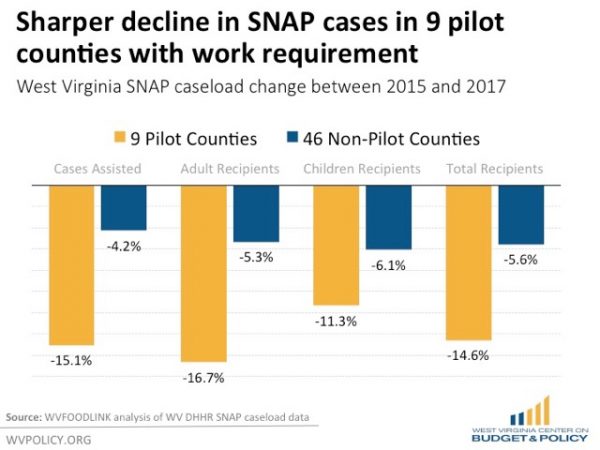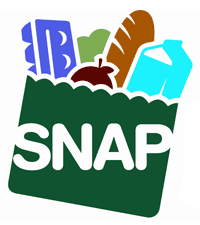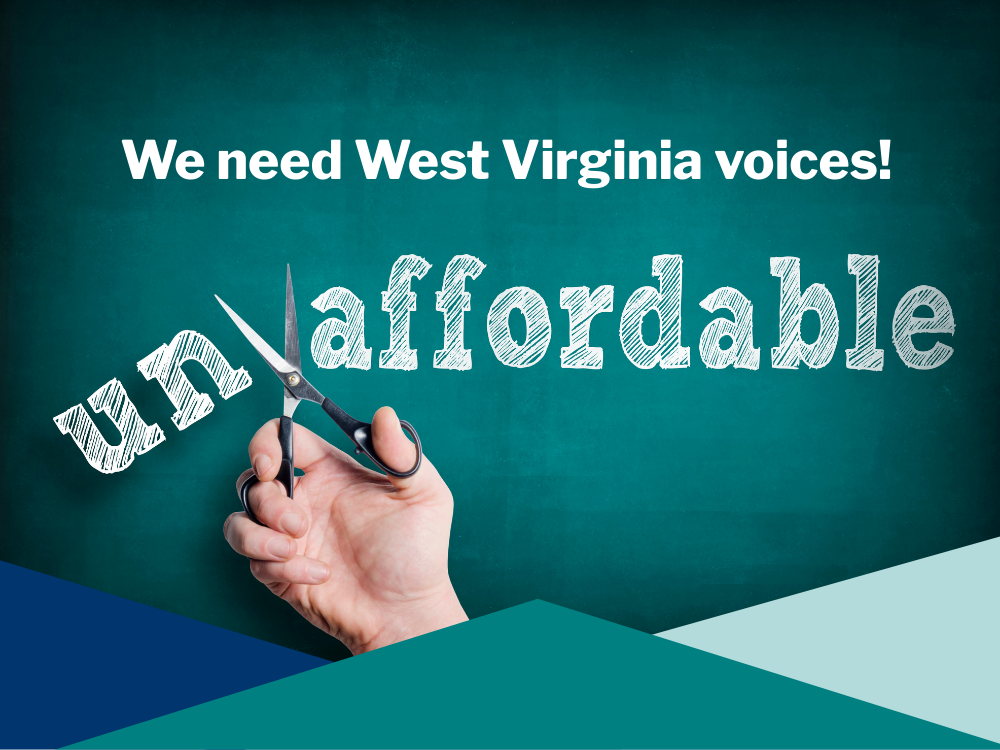- Like
- Digg
- Del
- Tumblr
- VKontakte
- Buffer
- Love This
- Odnoklassniki
- Meneame
- Blogger
- Amazon
- Yahoo Mail
- Gmail
- AOL
- Newsvine
- HackerNews
- Evernote
- MySpace
- Mail.ru
- Viadeo
- Line
- Comments
- Yummly
- SMS
- Viber
- Telegram
- Subscribe
- Skype
- Facebook Messenger
- Kakao
- LiveJournal
- Yammer
- Edgar
- Fintel
- Mix
- Instapaper
- Copy Link
Week six on of the 2018 legislative session kicked off with a public hearing before the House Judiciary Committee on HB 4001, which would further restrict access to food assistance (SNAP) and other vital safety net programs by imposing asset testing and work requirements on recipients of public assistance, and require the West Virginia DHHR to implement a costly new comprehensive verification system.
After the public hearing, where nearly everyone who spoke about the bill opposed the proposed changes to eligibility requirements, the committee took up and passed a version of the bill that made significant changes to the proposal sent to it by the House Health Committee two weeks earlier. The Judiciary Committee eliminated the asset testing requirement for those who apply for SNAP or Temporary Assistance for Needy Families (TANF). The revised bill also prohibits the state from providing a financial incentive for its eligibility verification vendor to reduce the number of SNAP recipients.
Although these changes make the bill less bad, HB 4001 would implement work requirements in some of the state’s poorest counties, and prevent able bodied adults without dependents from accessing SNAP for more than 3 months over a three year period, and imposes no responsibility on the state to provide assistance or incentives to help program participants obtain work or job training or to further their education. This will only replicate the state’s replicate the failures of the state’s nine-county pilot project which enacted a work requirement for SNAP that failed to boost employment but succeeded in lowering enrollment.
As our Development Director, Alex Gallo said during the public hearing, “Feeding people makes good economic sense.” According to the Center on Budget and Policy Priorities, in a weak economy, every $1 in SNAP benefits generates $1.70 in our local economy. In 2016, SNAP brought $499 million in federal dollars to West Virginia.

HB 4001 is headed for a vote by the full House on Tuesday. Please contact your delegate(s). Tell them the proposed changes to SNAP will hurt our people and our economy, and tell them to vote NO on HB 4001.



